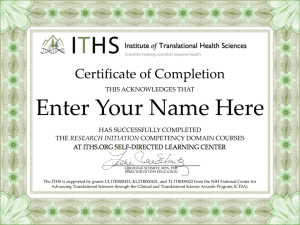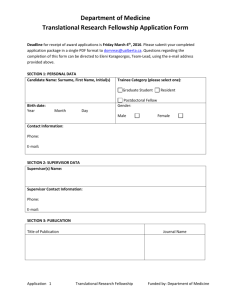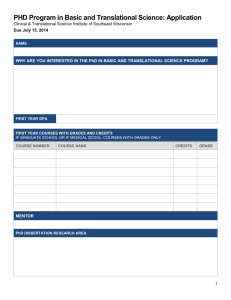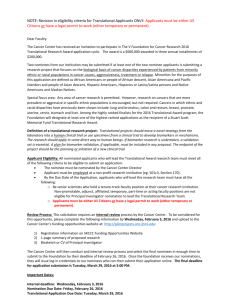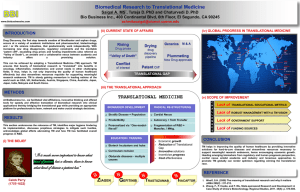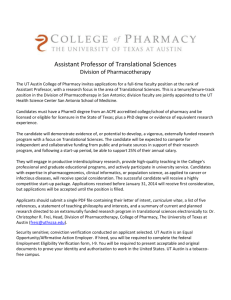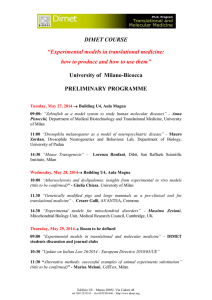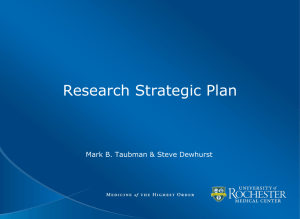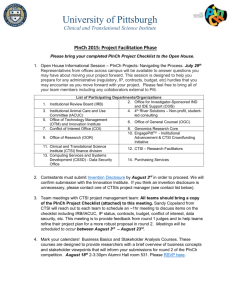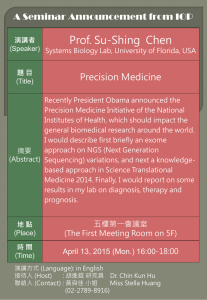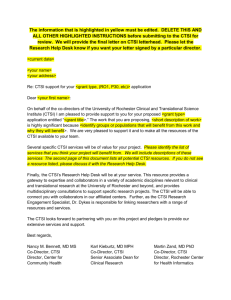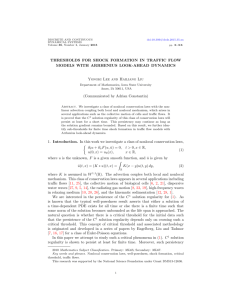RFA - Clinical and Translational Science Institute
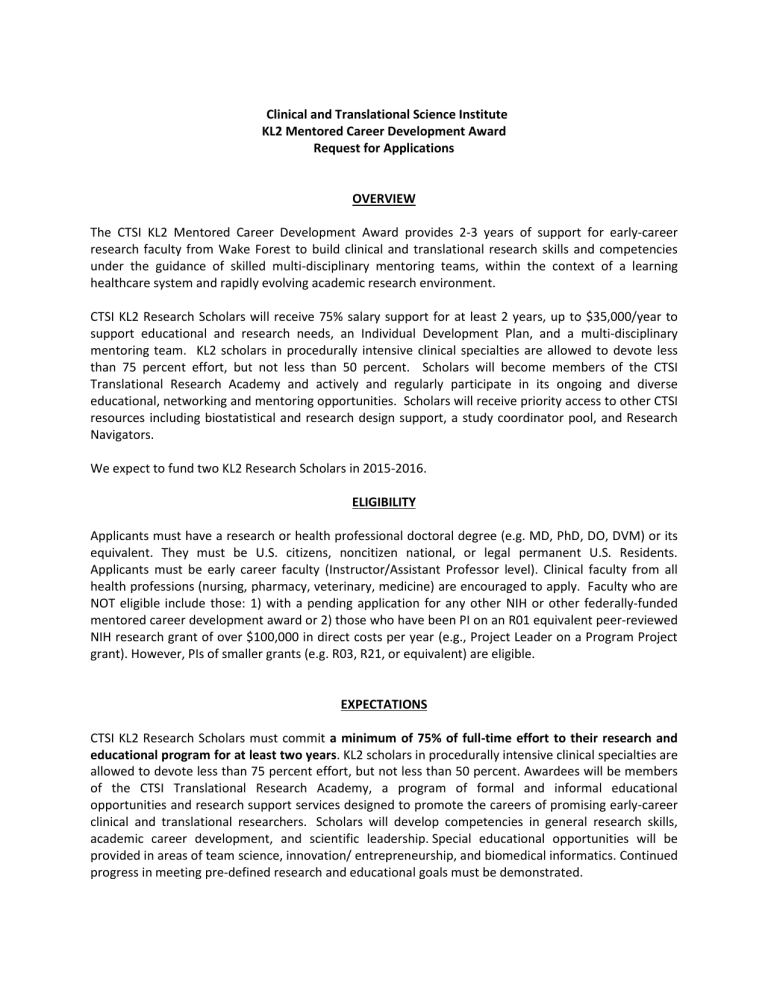
Clinical and Translational Science Institute
KL2 Mentored Career Development Award
Request for Applications
OVERVIEW
The CTSI KL2 Mentored Career Development Award provides 2-3 years of support for early-career research faculty from Wake Forest to build clinical and translational research skills and competencies under the guidance of skilled multi-disciplinary mentoring teams, within the context of a learning healthcare system and rapidly evolving academic research environment.
CTSI KL2 Research Scholars will receive 75% salary support for at least 2 years, up to $35,000/year to support educational and research needs, an Individual Development Plan, and a multi-disciplinary mentoring team. KL2 scholars in procedurally intensive clinical specialties are allowed to devote less than 75 percent effort, but not less than 50 percent. Scholars will become members of the CTSI
Translational Research Academy and actively and regularly participate in its ongoing and diverse educational, networking and mentoring opportunities. Scholars will receive priority access to other CTSI resources including biostatistical and research design support, a study coordinator pool, and Research
Navigators.
We expect to fund two KL2 Research Scholars in 2015-2016.
ELIGIBILITY
Applicants must have a research or health professional doctoral degree (e.g. MD, PhD, DO, DVM) or its equivalent. They must be U.S. citizens, noncitizen national, or legal permanent U.S. Residents.
Applicants must be early career faculty (Instructor/Assistant Professor level). Clinical faculty from all health professions (nursing, pharmacy, veterinary, medicine) are encouraged to apply. Faculty who are
NOT eligible include those: 1) with a pending application for any other NIH or other federally-funded mentored career development award or 2) those who have been PI on an R01 equivalent peer-reviewed
NIH research grant of over $100,000 in direct costs per year (e.g., Project Leader on a Program Project grant). However, PIs of smaller grants (e.g. R03, R21, or equivalent) are eligible.
EXPECTATIONS
CTSI KL2 Research Scholars must commit a minimum of 75% of full-time effort to their research and
educational program for at least two years. KL2 scholars in procedurally intensive clinical specialties are allowed to devote less than 75 percent effort, but not less than 50 percent. Awardees will be members of the CTSI Translational Research Academy, a program of formal and informal educational opportunities and research support services designed to promote the careers of promising early-career clinical and translational researchers. Scholars will develop competencies in general research skills, academic career development, and scientific leadership. Special educational opportunities will be provided in areas of team science, innovation/ entrepreneurship, and biomedical informatics. Continued progress in meeting pre-defined research and educational goals must be demonstrated.
At the end of their participation, Scholars will be expected to submit applications for externally funded grants to support this research and further career development.
APPLICATION
The application should include:
A. Candidate’s background and career goals (1 page)
B. Educational plan (2-3 pages)
The plan should describe proposed educational activities and discuss how these will facilitate the conduct of the proposed research and the development of desired research, leadership, and career development competencies. Options can include, but are not limited to, formal degree programs, selected graduate courses, experiential internships, short courses, conferences, online courses, and selfstudy.
Applicants who do not hold a research degree are strongly encouraged to enroll in a formal program.
Applicants not choosing a formal degree program should justify the merits of the proposed educational plan in lieu of the research degree.
The educational plan should be formulated to enhance the Scholar’s competencies in the following domains:
Critical thinking and research question formulation
Biostatistics and study design
Responsible conduct of research and regulatory environment
Research implementation
Scientific communication
Proposal preparation
Community engagement and cultural diversity
Biomedical informatics
Team science and team leadership
Innovations and non-academic research partnerships
Details and application deadlines for two WFSM degree programs focused on translational research are available as follow:
1) Clinical and Population Translational Sciences https://www.phs.wakehealth.edu/public/edu.cfm
2) Molecular Medicine Translational http://www.wakehealth.edu/School/Molecular-Medicine-Graduate-Program/
C. Letter from the applicant’s Section Head (if applicable), Department Chair, and/or Center or
Institute Director
Letter(s) must agree to protect 75% of the applicant’s time, if the grant is awarded. (Note: For Scholars in procedurally intensive clinical specialties, the protected effort can be less than 75 percent effort, but not less than 50 percent).
D. Two letters of recommendation from faculty which speak to the candidate’s potential to become a leader in clinical/translational research
E. The candidate’s CV
F. The primary mentor’s CV - CV should convey his/her mentoring track record and independent research funding sufficient to provide the mentee with specialized resources and an environment necessary to complete the proposed project.
G. A letter of support from the proposed primary mentor(s) which delineates his/her prior experience in research mentoring, commitment to the mentee and his/her specific career development goals, and endorsement of the proposed educational plan.
H. Summary of the clinical or translational research project to be conducted (5 pages maximum)
This project should address a problem of compelling clinical or translational relevance, ideally from a multidisciplinary perspective. The summary should include:
Specific Aims
Background and Rationale – including significance of the problem to be studied
Approach
Identification of a primary mentor (or mentors) and their role in the project
Specific plans to extend the proposed work via external funding
I. References
J. A one-page budget requesting funding for each year of support
Using this template , prepare a budget that reflects salary support for 75% effort (plus fringe benefits) for the Scholar. (Note: For Scholars in procedurally intensive clinical specialties, the protected effort can be less than 75 percent effort, but not less than 50 percent). Additionally, a maximum of up to
$35,000/year in research/educational support funds for years 1 and 2, e.g. supplies, travel, tuition, or other non-salary support. Salary support for other individuals is not covered by this award.
K. A completed Translational Research Competencies Baseline Assessment – Survey should be completed at the time of the submission of the application.
The DEADLINE for receipt of CTSI KL2 Mentored Career Development Scholar applications is
Wednesday, October 28, 2015. Proposals should be submitted electronically at this link.
Incomplete application packages will be returned without review.
All applicants are encouraged to meet with Anita Pulley, Administrative Director of Education for BRSA, prior to the submission to discuss proposed educational plans and receive information about resources available through the CTSI.
For any questions about the CTSI KL2 Mentored Career Development Scholar program, contact Anita
Pulley, Director, BRSA Education and Training, apulley@wakehealth.edu
or 716-9895.
For any questions about the online application process, contact Meredith Hankins, BRSA Project
Coordinator, mahankin@wakehealth.edu
or 716-1428.
NIH Definitions of Clinical and Translational Research
Clinical Research is patient-oriented research conducted with human participants (or on material of human origin such as tissues, specimens, and cognitive phenomena) for which an investigator (or colleague) directly interacts with human subjects. Studies may focus on mechanisms of human disease, therapeutic interventions, clinical trials, or the development of new technologies to prevent, detect, diagnose, or treat disease. Other clinical research explores outcomes, such as quality of life, and use of health services. Clinical research studies include epidemiological studies (study of the numbers of people and patterns of a disease or condition in a population), observational studies (in which individuals are observed and their outcomes are measured by the investigators), and clinical trials (in which the participants are assigned by the investigator to a treatment or other intervention, and their outcomes are measured).
Translational Research includes two areas of translation. One is the process of applying discoveries generated during research in the laboratory, and in preclinical studies, to the development of trials and studies in humans. The second area of translation concerns research aimed at enhancing the adoption of best practices in the community. Cost-effectiveness of prevention and treatment strategies is also an important part of translational science.
EVALUATION OF APPLICATIONS
Applications will be screened for eligibility by Dr. Stephen Kritchevsky, Director of the CTSI Mentored
Career Development Program. Eligible applications will be reviewed by the Translational Research
Academy Core Faculty and external reviewers.
Applicants will be evaluated on:
Past academic performance and research productivity
Proposed project’s scientific merit, feasibility, and clinical/translational impact
Potential of the project to lead to successful extramural grant applications
Educational plan’s coverage of core competencies
Strength and commitment of the proposed primary mentor
Commitment of the department to the candidate’s scholarly and professional development
Applicants will be scored according to the 9-point NIH scale. Top candidates will be invited to present a
“chalk talk” to the Translational Research Academy’s Core Faculty outlining their research plan, expected results, and possible future directions. The final selection decision will be made by KL2 Core
Faculty.
Applicants will be notified of the outcome of their applications by Tuesday, November 24, 2015. The expected start date of the KL2 is Monday, January 11, 2016.
AWARD DATE
Awards will begin on January 11, 2016 and end on January 10, 2018. Partial support for a third year is available with the demonstration of good progress and financial need. We expect to grant 2 of these awards, depending on the quality of applications received.
